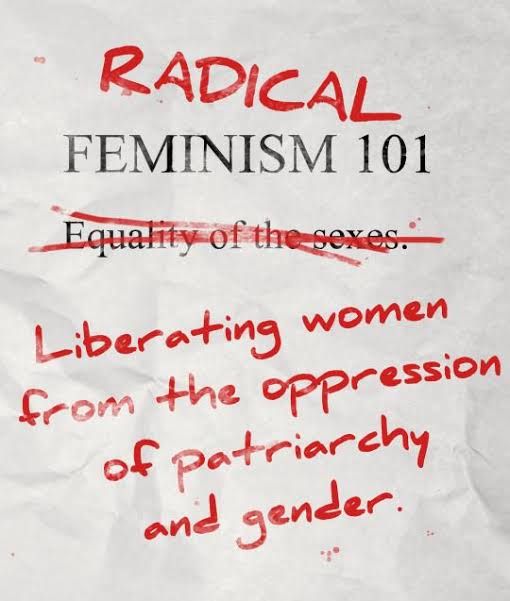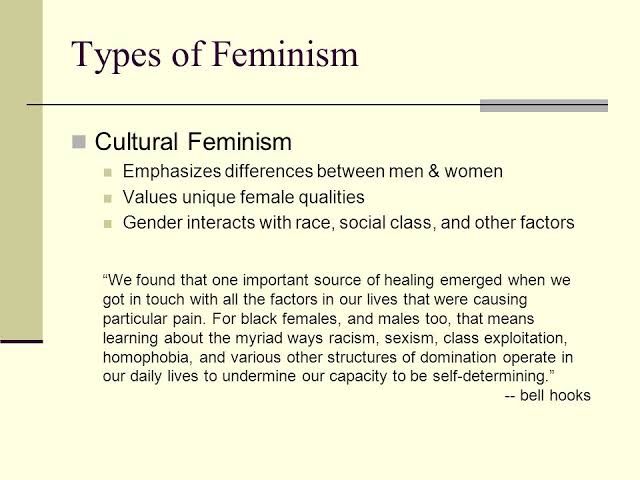Cultural And Radical Feminism
Jul 16, 2019 • 201 views
Radical Feminism :
Radical Feminism, as the name suggests, is radical and enthusiastic in its approach believing in the power of absolute and extreme action. Such feminists seeek complete overhauling and re-ordering of the society with the limitation of male dominance and supremacy at the various levels of society, politics, economy and culture. This includes challenging the notion of the traditional gender roles, opposing the sexual objectification of women, and raising public awareness about issues such as rape and other crimes against women.

Radical feminists opine that the root cause of women oppression lies in the patriarchal gender relations. The class of men are the oppressors of the class of women. According to them, men as a class, benefit from this oppression. Most radical feminists propose that the oppression of women is the most basic form of oppression but some of them also take into consideration other possible bases of bias and prejudice as race, social class, perceived attractions, sexual orientation and ability.
In 1999, Germaine Greet published as equal to ‘The FemaleEunuch’. The book was named‘ TheWholeWoman’. According to Ellen Will’s 1984 essay, ‘Radical Feminism and Feminist Radicalism’, radical feminists were accused of being“bourgeois” ,“anti left”or even ‘ apolitical’.
Cultural feminism :

This branch of feminism celebrates the culture of female existence and history. They seek to bring to the fore and attach sense of pride to those very feminine attributes which are generally used as a tool against women, forcing them to give in and accept a distorted image of themselves , as females. It attempts to reiterate the existence of female nature or female essence.
Alice Echols , a feminist historian and cultural theorist , regards Brooks Williams responsible for coming up with the term “cultural feminism” in 1975 to describe the depoliticisation of radical feminism. Therefore, cultural feminism is a term used to describe theories that reinforce the differences between men and women. But unlike radical or socialist feminism , it was not an ideology popular among people, but was better known as a label ascribed by its opponents.
